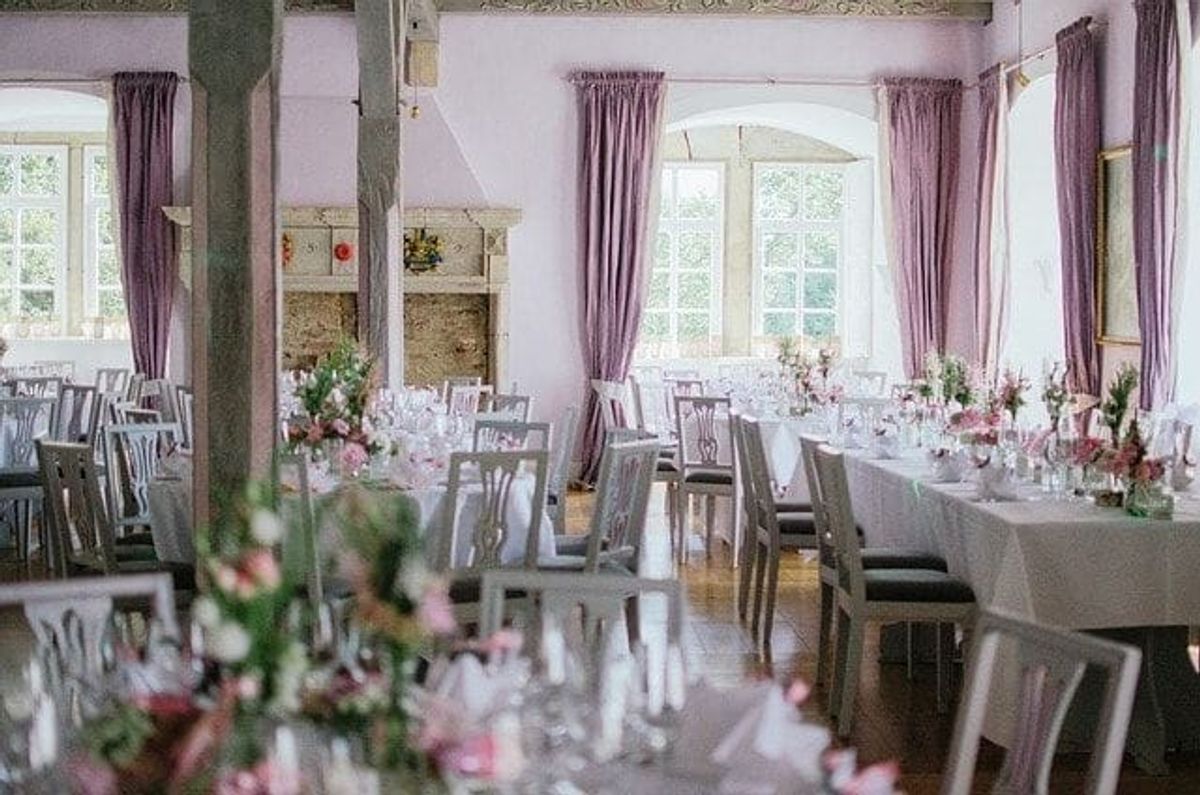Finding the Perfect Venue for Events
Planning a successful event or party requires considering every aspect of the experience. From corporate events to birthday parties, selecting the right venue can significantly influence the overall outcome.
Quick Summary
Selecting the right event venue is crucial for creating the ideal atmosphere and fostering connections, influencing every aspect of the occasion. Factors such as location, size, and amenities must align with the event's purpose, whether it's a corporate meeting or a birthday celebration. Understanding budgetary constraints and leveraging social media for promotion enhances overall success. Ultimately, thorough research and careful planning ensure the venue enhances the experience and exceeds att
The choice of an event venue often goes beyond simply providing a space; it plays a vital role in creating the right atmosphere, fostering meaningful connections, and ensuring a memorable experience for all attendees.
Whether it's a corporate conference, a wedding reception, or a birthday party, selecting the perfect venue can set the tone for the event.
Ready to Grow Your Business?
Get a custom strategy tailored to your goals.
Remember, while this blog post offers some ideas, it's essential to conduct your own research to tailor these strategies to your business needs.
Choosing the Right Event Venue

The venue is often the basis of any successful event. For event planners, choosing the ideal venue for events is crucial, as it often impacts every other decision related to the occasion. From event spaces that offer an inspiring backdrop to unique venues that create an unforgettable ambiance, the venue can define the character of the event.
When searching for the perfect venue for events, factors like location, accessibility, and size are often key considerations. Event planners often prioritize venues that provide convenient access for attendees, as well as availability for the specific date of the event. Meeting venues, banquet halls, and unique spaces like museums or art galleries can offer a range of different experiences, each adding its distinct touch.
An event planner may look at different options such as corporate events in New York, a birthday party at a local venue, or wedding celebrations at a banquet hall. The type of venue chosen is often influenced by the type of occasion and the desired style, making each event unique in its own way.
Venue Search: Finding the Best Event Spaces
Finding the right venue for events often begins with an extensive venue search. For many events, this means searching through options for banquet halls, event spaces, meeting venues, or even unique venues that stand out from the crowd. Venue search can include factors like capacity, availability, and specific amenities to meet the needs of the gathering.
Corporate events, for example, may require meeting rooms with ample seating and access to audio-visual technology for presentations. On the other hand, a birthday party may need an event venue with a more relaxed atmosphere, hardwood floors, and outdoor access to provide a celebratory ambiance for friends and family.
When considering event venues, factors such as security, catering services, and on-site amenities often play a significant role. A successful venue search not only involves identifying available spaces but also ensuring that the location aligns with the vision and requirements of the next event. Event planners often work with vendors to coordinate different aspects of the event, from food and drinks to seating arrangements and entertainment.
Event Planning and the Role of Event Spaces
Event spaces may serve as the canvas upon which an event is built. Whether it's a luxury reception, a conference, or a casual gathering, the event space is often the focal point of the planning process. From unique venues in a city like New York to traditional banquet halls, the space should match the event's purpose and aesthetic.
Planning an event may include booking a venue with features like ample space, sufficient seating, and free parking for guests. Whether it's a wedding or a corporate event, each event space often has its own set of attributes that contribute to the overall experience. Venues with character, like historical buildings or art galleries, can provide an inspired setting for attendees, allowing the event to stand out.
The choice of the event space can also impact practical elements like vendor coordination, guest access, and even the type of food served. Event planners often need to consider aspects such as the ease of setting up tables and chairs, the accessibility of rooms and doors for vendors, and the flow of the event space to create a seamless experience for all involved.
Ready to Grow Your Business?
Get a custom strategy tailored to your goals.
Budget Considerations for Event Venues

One of the most important aspects of selecting a venue for events may be understanding the budget. Event planners should allocate resources to different elements of the event, and the venue often represents a significant portion of the budget.
When planning events, it's often crucial to ensure that the chosen venue aligns with both the financial plan and the event's objectives.
When budgeting for an event venue, planners can consider factors such as rental fees, additional costs for services like security, and expenses for amenities such as tables, chairs, and audio-visual equipment. Booking unique venues or event spaces with added value can sometimes come with a higher cost, but these venues often provide a more memorable experience for attendees.
Partnering with sponsors or negotiating with vendors can also help offset some of the costs associated with an event venue. By working with sponsors who align with the event's purpose, planners can create mutually beneficial partnerships that enhance the event while reducing expenses. For example, hosting a business meeting at a luxury venue may attract sponsors who are eager to connect with attendees from specific industries.
Social Media and Event Promotion

Promoting the event can be another key part of ensuring its success, and social media platforms are often an effective tool for building excitement around an event. Platforms like Instagram, LinkedIn, and X can be used to showcase the chosen venue, share event details, and engage potential attendees.
Creating content, such as behind-the-scenes footage of the venue preparation or interviews with key speakers, can help build momentum leading up to the event. Using event-specific hashtags and encouraging user-generated content allows attendees to share their experiences, further expanding the event's reach.
During the event, live updates, interactive polls, and Q&A sessions can keep participants engaged and enhance the overall event experience. Sharing content from attendees can create a sense of community and provide authentic promotion for future events.
Post- event promotion can be equally important. By sharing highlights, thanking attendees, and collecting feedback through surveys, event planners can maintain excitement and strengthen relationships with participants. This ongoing engagement can encourage attendees to join future events and foster a loyal community.
Conclusion
The right venue for events is often more than just a physical space—it's an integral part of the event's success. Whether hosting a wedding, a corporate event, or a casual gathering, selecting the perfect venue can enhance the experience for all involved. Each element, from venue search and budgeting to promotion and guest engagement, can play a role in creating a seamless and memorable event.
Remember, finding the ideal event venue is often about balancing practical needs with the desired experience. By doing thorough research and considering the aspects of each event, planners can create an atmosphere that not only meets but exceeds expectations.
Ready to Grow Your Business?
Get a custom strategy tailored to your goals.
If you're looking for expert assistance in event planning, consider contacting AMW for help creating and executing your next unforgettable event.
Essential Venue Features and Amenities to Evaluate
Beyond basic space requirements, successful event planners must thoroughly evaluate the technical capabilities and amenities that each potential venue offers. Modern events often require robust Wi-Fi connectivity, adequate electrical outlets for charging stations, and professional lighting systems that can be adjusted for presentations or ambiance. Climate control is equally crucial, as temperature fluctuations can significantly impact guest comfort and engagement throughout the event duration.
Accessibility features deserve special attention during venue evaluation, as compliance with ADA requirements ensures all guests can participate fully. Look for venues with wheelchair-accessible entrances, restrooms, and elevator access to upper floors. Additionally, consider practical amenities like coat check services, designated loading areas for vendors, and adequate restroom facilities based on expected attendance. Venues that offer in-house catering kitchens, storage spaces for supplies, and dedicated areas for registration or reception can streamline logistics and reduce coordination complexity.
Security features and emergency protocols should also factor into your decision-making process. Venues with professional security systems, emergency exits clearly marked, and established relationships with local emergency services provide peace of mind for both planners and attendees. Some venues offer additional services like event insurance, liability coverage, or on-site security personnel, which can be particularly valuable for larger corporate events or high-profile gatherings.
Timing and Booking Strategies for Maximum Value
Strategic timing of your venue booking can significantly impact both availability and cost, with industry experts recommending different lead times based on event type and size. Corporate conferences and large weddings typically require 6-12 months advance booking, especially in competitive markets like New York or San Francisco, while smaller gatherings may secure quality venues with 2-3 months notice. Peak seasons, including spring wedding months and end-of-year corporate events, command premium pricing and limited availability.
Negotiating venue contracts requires understanding the full scope of included services versus additional fees. Many venues offer package deals that bundle essentials like tables, chairs, basic lighting, and cleanup services, potentially providing better value than itemized pricing. However, carefully review cancellation policies, payment schedules, and force majeure clauses, particularly in light of recent global events that have highlighted the importance of flexible booking terms. Some venues offer significant discounts for off-peak dates, weekday events, or last-minute bookings that can help stretch your budget further.
Consider establishing relationships with preferred venues for recurring events or multiple bookings throughout the year. Many venue managers offer loyalty discounts, priority booking status, or customized service packages for repeat clients. This approach works particularly well for corporate clients hosting quarterly meetings, annual conferences, or regular networking events, as consistent partnerships often yield better service and more competitive pricing over time.
Technology Integration and Virtual Event Capabilities
Modern event success increasingly depends on seamless technology integration, making it essential to evaluate venues' capabilities for hybrid and virtual components. Look for venues equipped with professional-grade streaming equipment, multiple camera positions, and dedicated technical support staff who can manage live broadcasts to remote attendees. High-speed internet with redundant connections ensures uninterrupted streaming, while professional audio systems with wireless microphone capabilities enable clear communication for both in-person and virtual participants.
Interactive technology features can significantly enhance attendee engagement and event ROI. Venues offering built-in presentation systems, digital signage capabilities, and mobile app integration allow for real-time polling, Q&A sessions, and networking facilitation. Some forward-thinking venues provide augmented reality features, interactive displays, or social media walls that encourage attendee participation and create shareable moments that extend your event's reach beyond the physical space.
When evaluating technology capabilities, request detailed technical specifications and conduct site visits that include testing key systems. Verify backup power solutions, technical support availability during your event, and compatibility with your preferred event management software or registration platforms. Venues that offer comprehensive technology packages often provide better value and reduced stress compared to coordinating multiple external vendors, while ensuring all systems work together seamlessly throughout your event.
Ready to Grow Your Business?
Get a custom strategy tailored to your goals.
Frequently Asked Questions
What factors should I consider when choosing a venue for a corporate event in New York?
When selecting a corporate event venue in New York, prioritize location accessibility for attendees, availability on your specific date, and adequate capacity. Essential amenities include meeting rooms with audio-visual technology for presentations, sufficient seating arrangements, and reliable WiFi. Consider venues with free parking or convenient public transportation access. Security features, on-site catering services, and vendor coordination capabilities are also crucial for ensuring a professional and seamless corporate event experience.
How do I find unique event venues that will make my celebration memorable?
To find unique event venues, expand your search beyond traditional banquet halls to include museums, art galleries, historical buildings, and cultural centers. These venues offer distinctive character and inspired settings that create unforgettable experiences. Consider venues with unique architectural features, outdoor spaces, or themed environments that align with your event's vision. Research local landmarks, converted industrial spaces, or specialty venues that offer both ambiance and the practical amenities needed for your specific celebration type.
What's the difference between banquet halls and other event spaces for birthday parties?
Banquet halls typically offer traditional, formal settings with standardized layouts, built-in catering services, and conventional amenities. Other event spaces like museums, galleries, or outdoor venues provide more unique atmospheres and flexibility in design. For birthday parties, consider venues with relaxed ambiances, hardwood floors for dancing, outdoor access for activities, and spaces that accommodate both children and adults comfortably. The choice depends on your desired style, guest count, and celebration theme.
How far in advance should I start my venue search for important events?
Start your venue search 6-12 months in advance for major events like weddings or large corporate conferences, especially in popular locations like New York. For smaller gatherings or birthday parties, 2-4 months is typically sufficient. Popular venues and prime dates book quickly, particularly during peak seasons. Early planning allows time to compare multiple options, negotiate pricing, coordinate with vendors, and ensure your preferred venue aligns with all event requirements and vision.
What venue amenities are most important for successful event planning?
Essential venue amenities include adequate capacity for your guest count, accessible location with parking or transportation options, and basic facilities like restrooms and climate control. For corporate events, prioritize audio-visual equipment and WiFi. Consider venues offering in-house catering services, security features, and flexible setup options. Additional valuable amenities include vendor coordination support, backup power, adequate lighting, and spaces for different activities like presentations, dining, and networking to ensure a seamless event experience.
How do I match the right event venue to my specific type of celebration?
Match venues to your event type by considering atmosphere, capacity, and required amenities. Corporate events need professional settings with meeting facilities and technology. Wedding receptions require elegant spaces with catering capabilities and romantic ambiance. Birthday parties benefit from venues with flexible layouts and fun atmospheres. Consider your guest demographics, event style (formal vs. casual), required activities, and budget. Visit potential venues to assess how well the space's character and practical features align with your celebration's specific needs and vision.
Related Resources
Calculators
Pricing Guides
Key Terms
Marketing strategy that promotes brands, products, or services through hosted or sponsored in-person or virtual events.
Attendee AcquisitionThe marketing strategies and tactics used to attract and convert target audiences into event registrants.
Event Experience DesignHolistic approach to creating memorable, purposeful attendee journeys at events.
Attendee Acquisition StrategyPlanned approach to attracting and registering target audiences for events.
Post-Event StrategyPlanned follow-up activities that extend event value and drive business outcomes.
Related Articles

Events Marketing Plan: Creating an Event Strategy
Planning a successful event often requires a well-thought-out strategy that can significantly impact its outcome. Whether you're organizing a conference, a product launch, or a community event, an

Event and Party: Planning for Memorable Experiences
Planning an event and party can be a rewarding process that brings people together to celebrate, create memories, and share meaningful experiences. Whether it's a wedding, a corporate gathering, o
Planning an Event Checklist: A Step-by-Step Guide
Planning a successful event often begins with a detailed event planning checklist that may help ensure every aspect of the event is well-organized and effectively managed. Whether it's a corporate